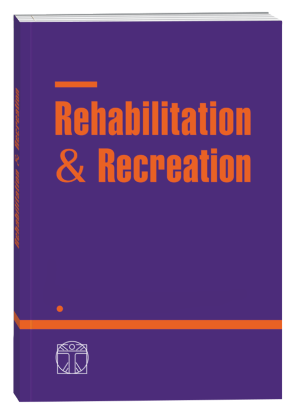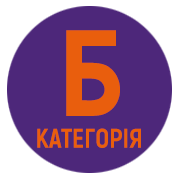RELATIONSHIP OF PHYSICAL ACTIVITY AND VALUE-DEONTOLOGICAL COMPETENCE OF IT SPECIALIST
DOI:
https://doi.org/10.32782/2522-1795.2024.18.24Keywords:
physical activity, basic values, value-deontological competences, IT specialistsAbstract
The article highlights the analysis of the state of value-deontological competences of IT specialists with work experience of 5 years or more, as well as physical activity. The goal is to show the connection between the level of physical activity, sports regime and the level of value-deontological competencies of IT specialists. Research materials and methods. Analysis of Internet search databases (Scopus, Web of Science, ResearchGate, Google Scholar), a systematic review of materials and studies on the impact of physical activity on various aspects of life was carried out. The following empirical methods were used to conduct the experiment: survey, interview and experiment. The following methods of mathematical statistics are used to process the results: correlation analysis, proving the statistical significance of the results, SPSSv25.0 toolkit. Research results. The results of the study showed a positive relationship between the level of physical activity and value-deontological competencies of IT specialists. Respondents who had a high level of physical activity also showed a higher level of responsibility and ethics in work, which in turn indicates that supporting a sports regime can contribute to the formation and improvement of value-deontological principles among IT specialists. At the same time, interviewed IT professionals with a high level of physical activity showed greater self-discipline and concentration in making ethical decisions. Conclusions. Such conclusions of the empirical study indicate that regular physical activity can contribute to the development of such key competencies as self-control and the ability to analyze situations and emphasize the importance of supporting physical activity among IT professionals to increase the level of value-deontological competencies, which in turn will contribute to successful professional activity, and therefore the quality of services provided in the field of IT.
References
Шліхта Г.О. Змістове наповнення структурних елементів ціннісно-деонтологічних компетенцій майбутніх ІТ-фахівців. Інноватика у вихованні : зб. наук. пр. Вип. 18 / упоряд. О.Б. Петренко ; ред. кол.: О.Б. Петренко, Т.С. Ціпан, Н.М. Гринькова та ін. Рівне : РДГУ, 2023. С. 259–274. https://doi.org/10.35619/iiu.v1i18.584.
Andrieieva O., Maltsev D., Kashuba V., Dutchak M., Ratnikov D., Grygus I., Byshevets N., Horodinska I. Relationship Between Quality of Life and Level of Physical Activity and Family Well-Being. Physical Education Theory and Methodology, 2022. 22(4):569–575. https://doi.org/10.17309/tmfv.2022.4.16.
Blanchard C., Amiot C.E., Perreault S. The Role of Organizational Virtuousness in Sport Team Effectiveness: The Mediating Role of Collective Efficacy. Journal of Applied Sport Psychology, 2014. 26(2):225–241. doi: 10.1080/10413200.2013.838063.
Diachenko-Bohun M., Rybalko L., Grygus I., Zukow W. Health Preserving Educational Environment in the Condition for Information Technologies. Journal of History Culture and Art Research, 2019. 8(2):93–101. http://dx.doi.org/10.7596/taksad.v8i2.2075.
Erickson K.I., Hillman C., Stillman C.M., Ballard R.M., Bloodgood B., Conroy D.E., Macko, R., Marquez D.X., Petruzzello S.J., Powell K.E. Physical Activity, Cognition, and Brain Outcomes: A Review of the 2018 Physical Activity Guidelines. Medicine and science in sports and exercise, 2019. 51(6):1242–1251. https://doi.org/10.1249/MSS.0000000000001936.
Fehr R., Salmela-Aro K., Malmberg J. Does School Matter? The Role of School Context in Adolescents’ School-related Burnout. European Psychologist, 2012. 17(1):62–72. doi:10.1027/1016-9040/a000091.
Gandhi H., Vaishali K., Prem V., Vijayakumar K., Adikari P., UnniKrishnan B.A. Survey on Physical Activity and Noncommunicable disease risk factors among Physicians in tertiary care Hospitals, Mangalore. National Journal of Community Medicine, 2012. 3(1):7–13. URL: https://manipal. pure.elsevier.com/en/publications/a-survey-on-physical-activity-and-noncommuni cable-disease-risk-fa.
Global physical activity questionnaire (GPAQ). URL: https://www.who.int/publications/m/item/global-physical-activity-questionnaire.
Global Recommendations on Physical Activity for Health, 2009. World Health Organization. Geneva, Switzerland. URL: http://www.who.int/ncds/prevention/physical-activity/en/(дата звернення: 13.07.2018).
Iso-Markku P., Kujala U., Knittle K., Polet J., Vuoksimaa E., Waller K. Physical activity as a protective factor for dementia and Alzheimer’s disease: Systematic review, meta-analysis and quality assessment of cohort and case-control studies. Br. J. Sports Med. 2022. 56:701–709. doi: 10.1136/bjsports-2021-104981.
Johnson D.W., Johnson R.T. (2005). New Developments in Social Interdependence Theory. Genetic, Social, and General Psychology Monographs, 2005. 131(4):285–358. doi: 10.3200/MONO.131.4.285-358.
Kaplsal N.J. Sport and physical activity for youth with intellectual disability: An analysis of determinants and outcomes. Doctoral thesis, Australian Catholic University, 2019.
Mahlovanyy A., Grygus I., Kunynets O., Hrynovets V., Ripetska O., Hrynovets I., Buchkovska A., Mahlovana G. Formation of the mental component of the personality structure using physical activity. Journal of Physical Education and Sport, 2021. 21(Suppl. issue 5):3053–3059.
Mandolesi L., Polverino A., Montuori S., Foti F., Ferraioli G., Sorrentino P., Sorrentino G. Effects of Physical Exercise on Cognitive Functioning and Wellbeing: Biological and Psychological Benefits. Frontiers in psychology, 2018. 9, 509. https://doi.org/10.3389/fpsyg.2018.00509.
O’Loughlin E.K., Dutczak H., Kakinami L., Consalvo M., McGrath J.J., Barnett T.A. Exergaming in youth and young adults: a narrative overview. Games for Health Journal, 2020. 9(5):314–338.
Schwartz S.H. Universals in the content and structure of values: Theory and empirical tests in 20 cultural groups. Advances in experimental social psychology, 1992. 25:1–65. https://doi.org/10.1016/S00652601(08)60281-6.
Smith J.K., Whiteman M. The Impact of Team-Building Games on Ethical Decision Making. Journal of Business Ethics, 2015. 132(2):365–377. doi: 10.1007/s10551-014-2302-3.
Downloads
Published
How to Cite
Issue
Section
License

This work is licensed under a Creative Commons Attribution-NonCommercial-NoDerivatives 4.0 International License.











